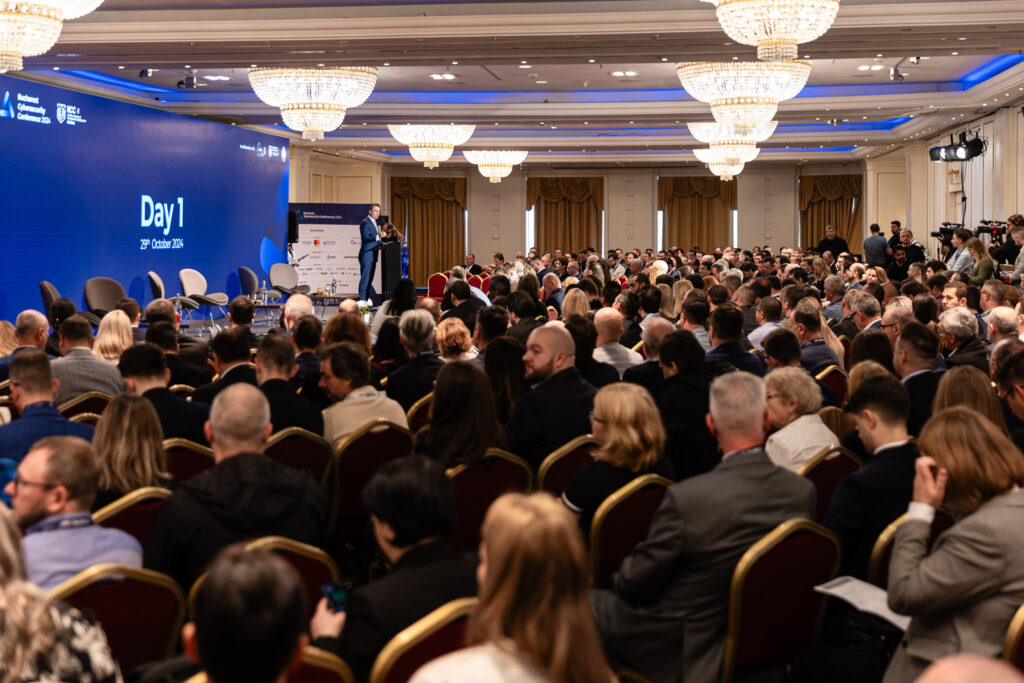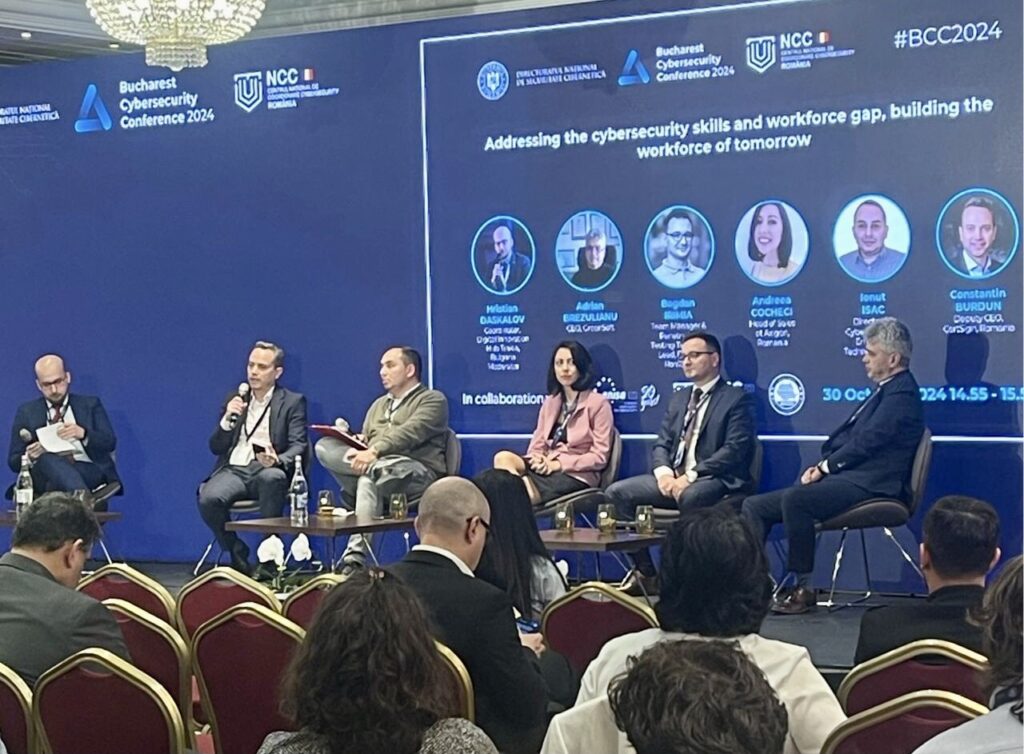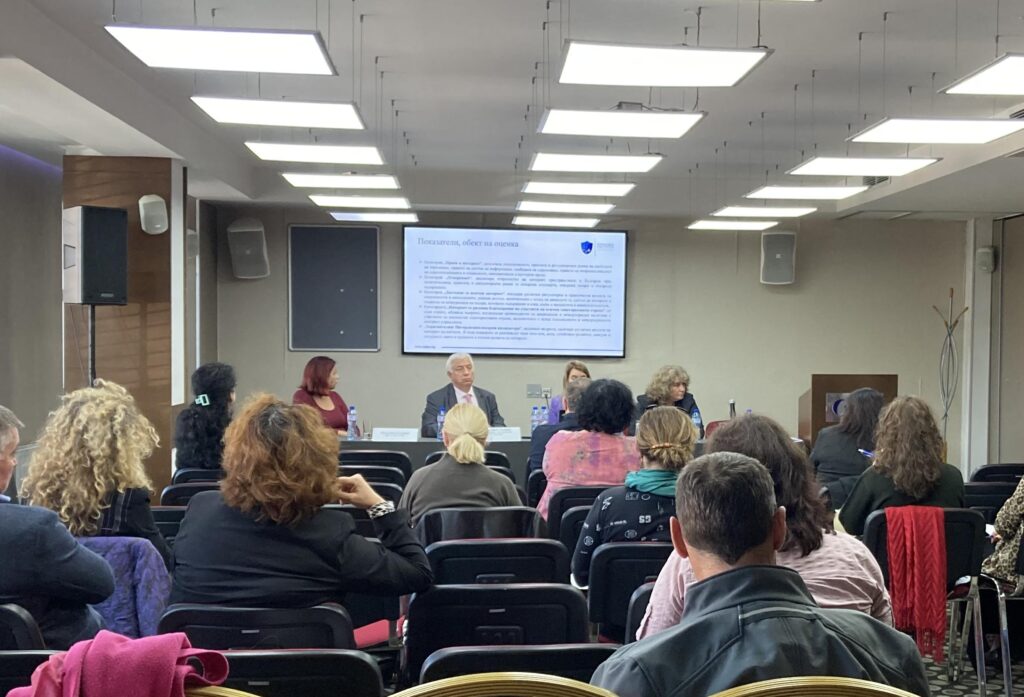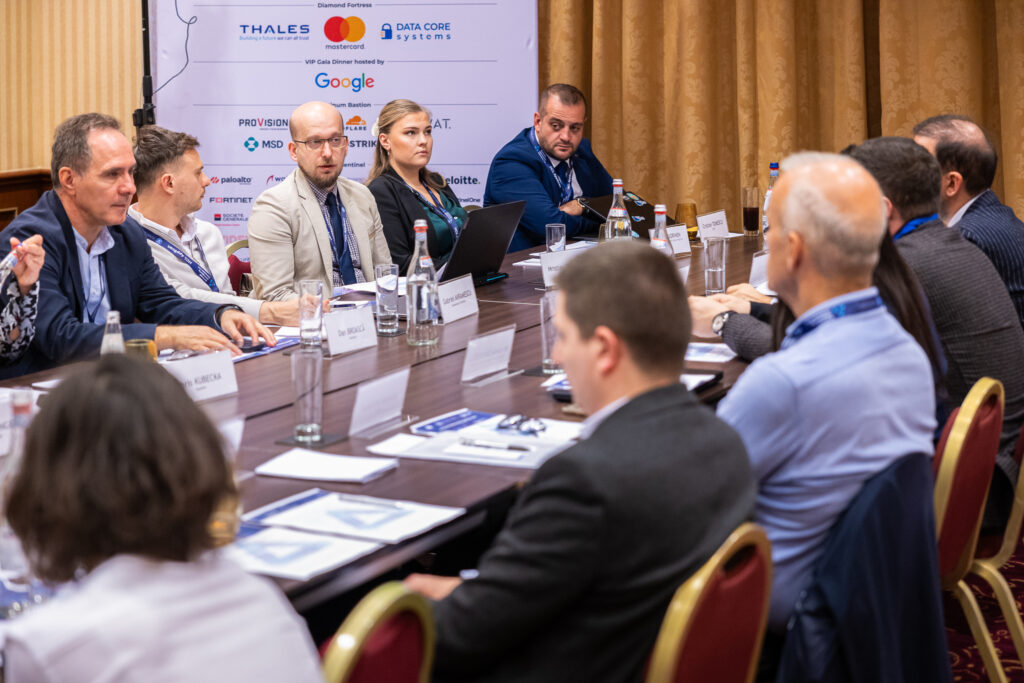On October 29, 2024, Dr. Hristian Daskalov, Chairman of the European Digital Innovation Hub “Trakia” (EDIH Trakia), participated in an exclusive roundtable discussion during the Bucharest Cybersecurity Conference (BCC2024). Trakia Hub had the honour of representing Bulgaria and the network of over 150 digital innovation hubs from all over Europe on stage at the forum.
The roundtable, which took place behind closed doors under Chatham House rules, was dedicated to implementing coordinated vulnerability detection (CVD) policies. The discussions focused on the legal and technical aspects of CVD, with Dr Daskalov presenting the Bulgarian initiative to legislate “ethical hacking” to improve cybersecurity and protect citizens’ rights.
EDIH Trakia and the Bulgarian Cybersecurity Association (BCA) propose that Bulgaria adopt coordinated vulnerability disclosure, following the example of Belgium, where a similar model is already successfully operating. The main objective of this regulation is to create legal protection for vulnerability researchers who follow ethical and established protocols while providing mechanisms for secure and timely remediation of weaknesses in corporate and public systems.
Highlights of the roundtable discussions included:
- Roles and responsibilities in the Coordinated Vulnerability Disclosure (CVD) process and the need for clearly defined channels of communication and response.
- Challenges and practical aspects for industrial organizations in implementing CVD, particularly in the use of open source and vulnerability reward programs.
- Technical automation solutions for prioritizing vulnerabilities and more effectively managing the processes for vulnerability detection and remediation.

“The participation of the Bulgarian Cybersecurity Association and EDIH Trakia in such a discussion is a significant step towards strengthening cooperation between the public and private sectors in protecting cyberspace. While I cannot disclose the details of the discussions, I should share that the research behind our legislative initiative, as well as the conclusions we have reached from it, have been welcomed by representatives of international institutions, government agencies, and corporate leaders from the cybersecurity sector,” commented Dr. Daskalov. “The Ethical Hacking Regulation will allow cybersecurity professionals to work effectively and without fear of legal repercussions, while improving the protection of our information systems.”
During BCC2024, attended by experts from more than 30 countries around the world, Dr Daskalov also moderated a panel discussion dedicated to the topic of “Building the Workforce of the Future” – a key discussion for overcoming the shortage of qualified cybersecurity professionals. It featured industry leaders who shared solutions and approaches to address the challenges of attracting and retaining digital security talent.
The theme of the panel and roundtable are key priorities for EDIH Trakia to support resilience and innovation in European cybersecurity addressed by the Cyber4AllSTAR project, implemented by EDIH Trakia and funded by the European Commission’s Digital Europe Programme and the national programme “Research, Innovation and Digitisation for Smart Transformation” (RIDIT 2021-2027).

At the end of October, the representatives of EDIH Trakia took part in another forum dedicated to digitalization and protection policies in the digital space. On 31 October 2024 Ms. Rumiana Atanasovaa, Head of Partnerships, presented the Digital Innovation Hub “Trakia” in the seminar for the project “National Assessment of Internet Development in Bulgaria”, organized by UNESCO and supported by the Council of Europe. The event took place at the Central Hotel in Sofia and brought together experts and leaders in the field of digital technologies and policies from Bulgaria and Europe.
The seminar covered topics related to internet universality, the future of digital connectivity, artificial intelligence, and digital rights. The participation of Digital Innovation Hub Trakia is part of the organization’s commitment to support and stimulate the development of internet infrastructure and innovation in Bulgaria. The Hub’s innovative approach was showcased in discussions aimed at collaboration between the civil sector, administration, and business to improve internet governance and ensure access for all.
The event also featured Mr. Cedric Wachholz, Head of UNESCO’s Digital Policies and Digital Transformation Unit, and Ms. Tatevik Grigorian, Programme Specialist at the Digital Policies and Digital Transformation Section – UNESCO.


